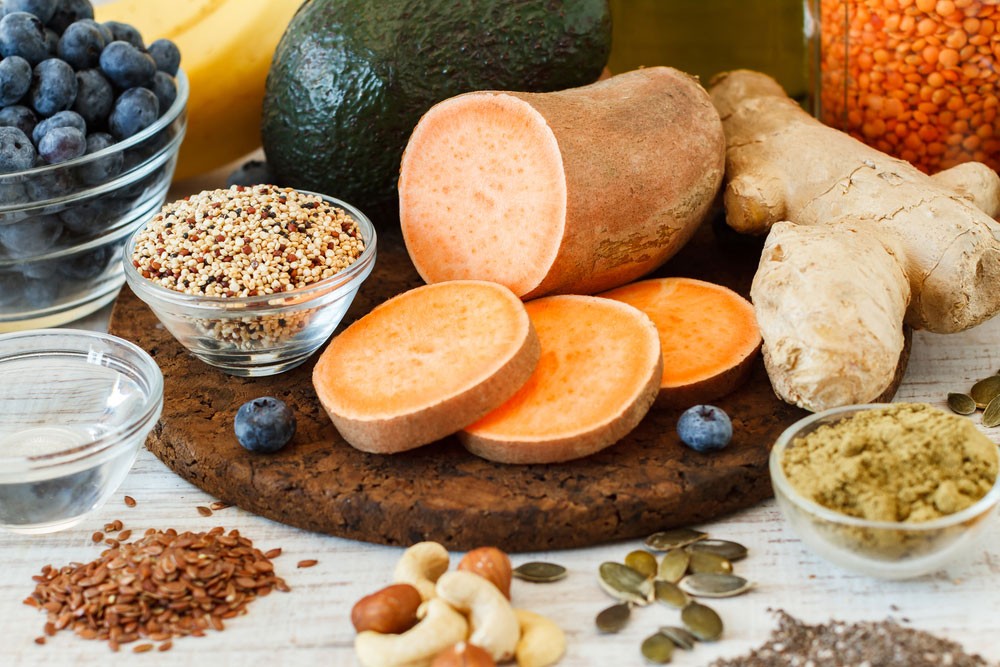Carbohydrates are an important fuel source for our bodies and should be part of a healthy diet. All carbs are not created equal, however, and it’s important to carefully select your sources of carbs.
These are three of the healthiest, go-to carbohydrate sources:
Beans and legumes
Legumes and beans like fava beans, chickpeas, green peas, lentils, white beans and brown beans are sources of carbohydrates that also are incredibly fiber-rich. For example, 100 grams of lentils contain about 8 grams of fiber!
Dietary fiber offers numerous benefits including lowering cholesterol and promoting both a feeling of fullness and regular bowel movements. Legumes and beans are also incredibly nutrient-rich and full of micronutrients like copper, folic acid, iron, potassium, zinc, and several B-complex vitamins. Additionally, they contain phytochemicals like lignans and polyphenols which have been linked to reductions in the risk of major chronic diseases
Many of our traditional and health Arab dishes are rich in legumes and beans. Lentil soup, foul, and fasoulia are just a few examples.
Sweet potatoes
Sweet potatoes are an excellent source of vitamin A; one medium-sized sweet potato contains over 400% of your daily vitamin A requirement. They are an excellent source of vitamin C and contain vitamin B Complex, and the minerals calcium, copper, iron, magnesium, phosphorus, and potassium.
Combined with their high fiber content, the low glycemic index rating of sweet potatoes suggest that they help improve blood sugar, lipids, and insulin levels in diabetes patients.
Tips: Keep the skin as it contains significant amounts of fiber and potassium and don’t confuse sweet potatoes with yams – both are healthy, but sweet potatoes have higher concentrations of most nutrients and more fiber.
Baked sweet potato kibbeh, sweet potato salad, and roast cauliflower and sweet potato casserole are examples of Arab dishes that include sweet potato. Of course, there are many other recipes to be found online.
Fruit
Although fruit contains carbohydrates and natural sugar, it also provides high amounts of vitamins, antioxidants, vitamins, and fiber. Some fruits offer more health benefits than others though. Berries are one good example, rich in antioxidants and fiber, they contain less sugar than some other fruits.
Although each one of us decides which diet is best for our goals and health (ideally by consulting a doctor, dietician, or nutritionist) carbs need not be the enemy, it’s simply a matter of choosing those that best support our nutritional needs.

